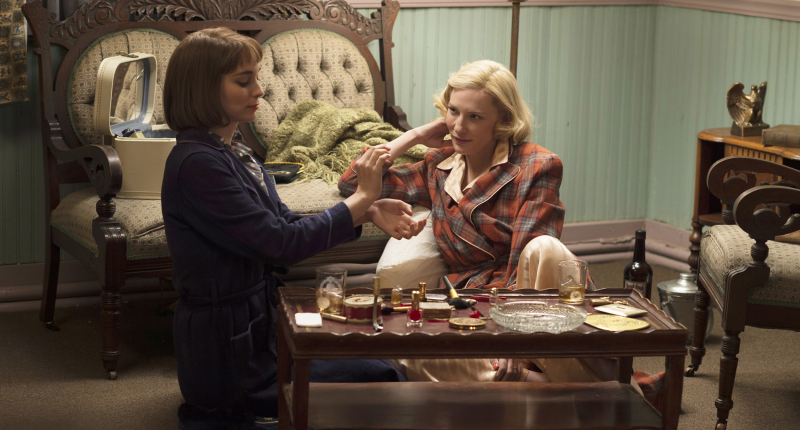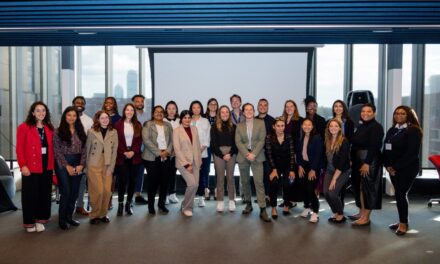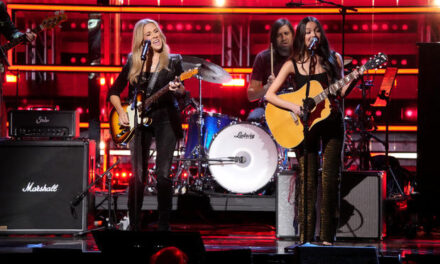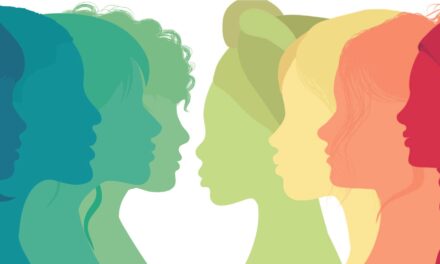As the saying goes: There are tall ships and small ships and ships that sail the sea, but the best ships of all are the super toxic ships we used to romanticize because we were too young to know better. Or something like that.
We’ve all been there. From the Disney movies that taught us to be quiet mermaids and forgive beasts to the early queer shows that confused soapy drama for romance, our earliest views of love were shaped in some of the wrong directions.
But now we are older and wiser! We can look back on our favorite toxic ships with compassion or horror or both. As adults, we would never fall for a toxic ship.
Well, sorry, except sometimes when they’re queer and super hot.
Carol Aird and Therese Belivet (Carol)
Drew
By the time I came out, Todd Haynes’ masterful melodrama Carol was already a big part of my life. In fact, I discovered Autostraddle while still closeted because of all our coverage. At first, I insisted my attachment to the movie was not for gay reasons. After all, I’d been a fan of Haynes since I was a kid and this represented some of his and his collaborators’ most expert craft. The score! The cinematography! The costumes! The acting! But once I came out, I admitted the biggest reason I loved it was because I was a lesbian.
This movie holds a fascination for baby queers, because, on the surface, it’s a fantasy. A rich older woman invites you to lunch and ushers you from shy heterosexual to passionate queer. I romanticized this relationship and longed for my own Carol Aird. I loved Carol because I thought it was romantic — now I love Carol because I know it is not.
Over time, I’ve become more attuned to Carol’s side of the story. She latches onto Therese due to a longing of innocence, a longing of control, a longing of escape. Her best friend Abby is right to suggest caution. It’s not that age gaps in relationships are inherently bad, but in this case age is only one part of what makes this pairing imbalanced. Queer age is its own arguably more important age. Class is another big gulf between them. When Carol writes, “You seek resolutions and explanations because you are young,” my romantic heart protested right alongside Therese. Now that I’m older, I see she was right.
The beauty of Carol is that it still manages to end on romantic possibility. With time apart, Therese has grown, and it’s possible upon reunion they will find a new, more balanced love where Therese is less passive. Or, maybe, like Carol and Abby, they will instead fall toward friendship. Our lovers can change our lives in so many ways even if the love isn’t meant to last.
Annabelle and Simone (Loving Annabelle)
Valerie Anne
I’ve written a bit about this, but when I was 19, I genuinely loved the romance in Loving Annabelle, because I had been that teenager who had crushes on her female teachers, but I was so deep in the closet I couldn’t have ever dreamed of actually doing anything about it. Of course, as an adult, and one who went to school for education at that, the idea that a teacher would date her student is abhorrent. I’m mildly horrified I didn’t see it then, but I think I grew up with a skewed view of how adults should treat children (including teenagers) and it took me until I was older to see it as problematic. Like I knew it was “wrong” but when I was 19 it was “wrong” the way being queer was “wrong” according to the Catholic church; now I know it’s “wrong” as in abuse and that being queer isn’t wrong at all. It’s amazing how watching a movie at two different stages of your life can shift your perspective entirely.
Valerie Anne
I shipped Buffy and Angel with my entire 9/10/11-year-old heart. That heart broke whenever they had to part, and I wept during the Buffy/Angel crossover episode I Will Remember You. (So I guess my 12-year-old heart, too.) David Boreanaz was my go-to answer whenever someone asked me who my celebrity crush was because I didn’t like boys but knew I was supposed to have an answer that wasn’t “Eliza Dushku.” No matter how many times he turned into Angelus, I wanted Angel and Buffy to find their way back to each other.
Now that I’m an adult… I don’t feel the same. I still remember that feeling, but it’s not strong or present. Angel was too protective over the girl who was literally born to kick his ass, and there’s a reason Angelus came out as soon as they slept together for the first time. I think he was meant to be a metaphor, the type of guy who will be nice until he gets what he wants and doesn’t have a “use” for you anymore. It was a toxic dynamic, from his lurking in the shadows to his jealousy over any other guy who was interested in Buffy. It’s possessive and it’s not cute. I’ve watched this series more times than I can count, but every time I watch, I lose patience with Angel earlier and earlier in the show. I’m at the point now where I can’t get past him KILLING JENNY CALENDAR. “That wasn’t me” isn’t a valid response to becoming suddenly violent and terrible. Buffy deserved better.
Related, the more I watch the series the angrier I get (and I STARTED angry) at the hypocrisy of everyone shunning Faith for ACCIDENTALLY killing one (1) man, when they all forgave Angel for cruelly killing everyone’s favorite technopagen and torturing Giles with it. Harrumph.
Natalie
In the waning moments of the L Word pilot, Shane happens by the Porter-Kennard house after a night out. The sun’s just come up and Bette and Tina are on their front steps, reading the morning paper. They’re intertwined in each other: a barefoot Tina leaning against Bette, a white-tee clad Bette holding Tina’s hand in hers. Even as they chat with Shane, Bette can’t help but steal a glance at the woman she loves, the woman she wants to make a baby with. The glimmer from their post-coital glow is obvious and Shane can’t resist calling them out. But then, she adds something else.
“You see? That gives me hope,” she says, “because I love knowing that two people who’ve been together for so long can still make each other that happy.”
In that moment, a version of Bette and Tina imprinted on so many of us. It became who we always imagined them to be. Even through the fights and the cheating and the break-ups, they were still that couple on the steps and we longed for them. Every other relationship felt like an unnecessary impediment because Bette and Tina were always going to be that couple from the pilot. They’d always be two people who could still make each other that happy.
I’m not even sure why I held onto that vision for so long; why I longed for and cheered their reunions. Perhaps because television had been — and still is, to an extent — devoid of depictions of long-term lesbian relationships and I just wanted to see that represented somewhere. Maybe the chemistry between Jennifer Beals and Laurel Holloman drew me in. Or maybe the thought that two people — two queer women, in particular — who’d been together for a long time could still make each other that happy painted a picture of a future that I’d hoped would one day be mine. I don’t know why I coveted the idea of Bette and Tina being, forever, that couple on the steps.
Upon rewatch, that scene on the porch feels like an anomaly. A reflection of that post-coital glow, not a true reflection of their relationship. It wasn’t happiness, it was just a respite from their usual toxicity. That moment on the porch was a rare moment of intimacy between them, but the bulk of their relationship was intensity masquerading as intimacy. I’m almost embarrassed I didn’t recognize it initially.
Bette Porter was a narcissist. She was, at once, someone who was drawn to people who could match her and someone who retreated the moment she realized she wasn’t the smartest, most creative, most woke person in the room. She settled for boredom — she settled for Tina — because the only thing she hated more than being bored was being challenged. For her part, Tina was horribly co-dependent: Even when she wasn’t with Bette, every move Tina made was with her in mind. In the moments when it appeared like Bette had found happiness or growth, Tina would come rushing back, convincing Bette to regress to her former self — and then punishing Bette for that regression.
They fought all the time. They brought out the absolute worst in each other. They were apart more than they were ever together. They were our Carrie and Mr. Big — just as insufferable, just as toxic — and today they serve as a cautionary tale to not mistake intensity for intimacy.
House and Cuddy (House M.D.)
Kayla Kumari Upadhyaya
In my youth, I basically loved any ship that had the same vibe as Benedick and Beatrice in Much Ado About Nothing. When two people are mean and rude and disrespectful to each other? Sign me up baby! That’s called charm! It’s called banter! It’s called fraught romance! House and Cuddy were prime examples of these kind of couples.
Even then I knew they were probably ill-advised, but I lapped them up anyway!
Monica and Quincy (Love & Basketball)
Nic
Normally, I’m not one to bring straight people’s business to the chat, but as a Black millennial of a certain age, Love & Basketball had an absolute chokehold on me growing up. I thought I was Monica. I related to her on so many levels; I too hated sitting still to get my hair done and would have rather been outside playing basketball. The story is a tale as old as time: Childhood friends have a love-hate relationship all the way through elementary, middle, and high school, eventually realizing they have feelings for each other when they take different people to the prom and subsequently have a jealousy about it. (“Who you goin’ to the dance with? Spalding?” lives in my head RENT FREE to this day.)
Now that I think about it, Monica and Quincy might actually be one of my first “friends-to-lovers” obsessions. It seemed like the best case scenario to me, as someone who couldn’t imagine “trying” to get a boyfriend like some of my peers. Having one essentially built-in sounded perfect. As a viewer, I couldn’t believe Monica and Quincy didn’t see that they were meant for each other. And when they finally got together, my heart swelled.
Monica and Quincy both go to college to play ball, but they have very different experiences, what with all of the sexism in college sports. In fact, Quincy even tells her that she doesn’t need to worry about being anything other than “Quincy McCall’s wife.” (I KNOW.) Monica has a hard time proving herself while Quincy is the star player. Things get a bit dicey in their relationship when Quincy learns that his idol of a father has been cheating on his mother. He asks Monica to break coach’s curfew rule in favor of helping him through some emotional turmoil he’s dealing with. When she decides to follow the rules, Quincy is pissed and turns to flirting with other women instead of celebrating with Monica. This is what we like to call a RED FLAG. After college, Monica plays overseas and Quincy ends up in the NBA before suffering an ACL injury. When Monica comes to visit, she learns that Q is engaged and of course realizes that basketball doesn’t mean as much to her without Quincy in her life.
This leads to the iconic “play you for your heart” scene where Monica loses a hard fought game, only to have Quincy counter with “double or nothing”, showing her that he was willing to fight for them. The movie ends on a shot of a WNBA game and Quincy in the crowd with a baby girl, cheering on his wife, Monica. And at the time, I thought this was the greatest and most romantic thing ever, but now, I can barely get through the movie without cringing at the blatant selfishness and misogyny that Quincy exhibits. He expects Monica to drop everything for him, even though it could mean giving up a roster spot that she worked her ass off for. He perpetuates the idea that Black women’s needs and successes wouldn’t be celebrated as much as her male partner’s. Monica deserved better than having her dreams put on hold for this man. Gina Prince-Bythewood was at Game 3 of the WNBA finals the other night, and I’m choosing to believe she was doing research for a non-toxic wlw version of Love & Basketball.
Joey Potter & Dawson Leery (Dawson’s Creek)
Carmen
The thing about Joey and Dawson is that they are actually the toxic tether of what remains to this day my favorite romance trope. I am a “friends-to-lovers” girlie — always have been, likely always will be. It probably stems from my own introversion, I imagine. The dream and hope that someone could love me, like really love me, not from the awkwardness of putting myself out on dates or first impressions (which I’ve never excelled at, to be honest!) but from getting to know me over time. That by being myself, goofing off and eating cheetohs or obsessing about too much media or nerding out on some obscurity that no one else would even care about, that by doing those things I could magically have found my partner right in front of me all along. Isn’t the common refrain that you’re supposed to marry your best friend?
So then go back in ancient time to 1997 and imagine me in my sixth grade English class, eating Dawson’s Creek UP. Did we have social media? Baby, we barely had dial up. How did people find their fandoms? I have no idea. But every Wednesday morning, me and my three closest friends huddled our desks together to eat vending machine junk food for breakfast and compare notes. At one point my best friend got put on punishment for some lackluster grades and I solemnly swore to record each episode on VHS and deliver them to her during homeroom, so that she could catch up over the weekend. And it was there that I fell in love with Dawson Leery and Joey Potter.
Joey, with her perfect sideways crooked smile (that I trained myself to copy in photos and now as an adult, still have to remind myself to stop doing), loved Dawson — and I wanted Joey to have everything she loved. I wanted more than anything for Dawson to look up and realize that his perfect girl was right next to him, climbing through his window, all along. Before there was #TeamJacob or #TeamEdward, I was Team Dawson and when Pacey Witter, the supposed troubled “bad boy” with the heart of fucking gold, first stepped up to the plate to tell Joey that she deserved more than to be some narcessit’s second choice, I hated him. I could not, did not, refused to, live in a world where your first love — the person that you pinned over for years would not also be your happy ending.
I was wrong, of course. Joey and Pacey were teen me’s first example of a messy, grown up, real shit kind of love story. They understood not only each other’s light, but each other’s darkness, in ways that didn’t feel romantic to me back then. They challenged each other to do better and I couldn’t yet wrap my head around why that is swoon worthy, to find your true match instead of what you thought was your ideal. But now? Pacey was a legend. Lives were changed. Mine was one of them.
(And no, it’s not lost on me that Pacey and Joey are technically also “friends-to-lovers” too. Like I said, the trope remains unmatched.)
Riese
Obviously I related deeply to Angela Chase and I think Jordan Catalano was definitely the archetype for the kind of boyfriend I thought I needed, and by “needed” I meant “could save.” That was basically the deal if you were a little bit smart and weird and not conventionally attractive, that perhaps a brooding mysterious boy without much aspiration would be, somehow, drawn to you for all the reasons no other boys were. Jordan Catalano: an iconoclast!
Angela… likes the way he leans? She thinks Jordan Catalano is hot. I thought he was hot also! Great blue eyes. Was in a band, wrote songs, and had a car I think. Very aloof. Had literally nothing to offer the relationship. Consistently did the least. Angela loves reading and writing but Jordan can’t read or write. Most importantly Jordan was cool, and if Angela could date Jordan, then she would also be cool instead of being weird. The most interesting thing Jordan ever did was develop an interest in Angela Chase and the second-most interesting thing he ever did was sleep with Rayanne Graff, because that situation was very much like — two people being with each other instead of the person neither of them felt good enough for, you know? I think adults do that, too. (See also: the Jenny/Carmen/Shane love triangle.)
I watched the scene where Jordan held Angela’s hand in the hallway to “Late at Night” by Buffalo Tom about ten thousand times. I couldn’t imagine a greater gift a boy could bestow upon a girl. But could he ever offer her, like, emotional support of any kind? Do they have anything in common? Did he challenge her intellectually? NONE OF THAT MATTERS! He held her hand in the hallway and I cried!!!!
What were your favorite toxic ships? What are the toxic ships you still love?




![Malaria, PFAS, plus the latest from the FDA and CDC with Andrea Garcia, JD, MPH [Podcast]](https://hohmature.news/wp-content/uploads/2023/07/2018-11-19-GENERICSOCIAL-440x264.jpg)

